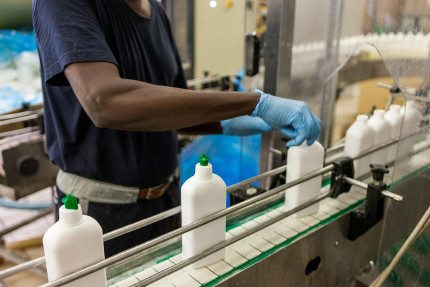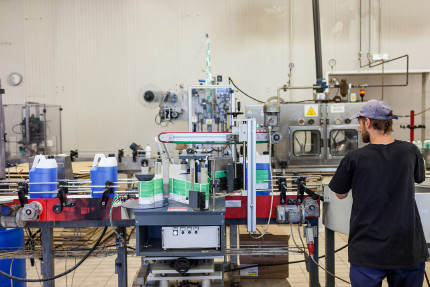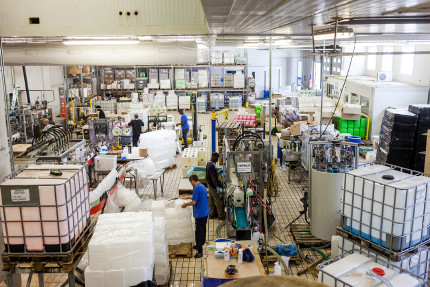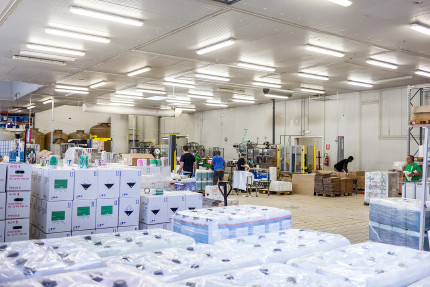“WISEs visibility depends on their ability to represent themselves”

Chindet is an Italian social cooperative based in Trento that designs, produces and sells detergents and cosmetics. The purpose of Chindet is to facilitate the employment of disadvantaged people, notably prisoners from the Prison District House of Trento. Alessandro Bezzi is a manager at Chindet.
How do you plan to use the tools and skills acquired through the project and how do you think they could develop or improve your daily work and in general the competitiveness of your business?
This is not an easy question to answer. Ideally, I believe that a technological contribution to our enterprise can have a useful impact; however, at this stage I find it hard to define in what context this could happen. We have to consider that Chindet, my company, is a medium-small enterprise that operates in a specific sector (detergents). The technology that immediately comes to mind is very specific and linked, for example, to the warehouse management, or to programming, which perhaps are not compatible with the needs of other companies participating in the project.

Why do you consider this project interesting and why have you decided to take part in the proactive test phase (pilot action)?
The reason why the project has drawn my attention is related to the possibility of dealing with other non-profit companies at European level. Our reference points are often limited to the cooperatives of Trentino Region or, at most, Italian ones. When looking for reference points outside of Italy, it is often difficult to find a common denominator. We are faced with small volunteering organizations, or even large cooperatives which, however, have not much to do with our social cooperatives. I believe, however, that this aspect should not be discouraging and indeed this effort can create innovation opportunities for our model. As for the specific issue of participating in the analysis, we took part in order to taking the time to think, also in abstract terms, about what we do and how we do it. And about what we can improve in what we do every day. In the first place, we are somehow reluctant to the idea of applying technological tools to our to daily activities, of having to try them and apply them regularly; in fact, in a first phase, it takes a long time to learn and get acquainted to use them, which does not make our work more efficient. So we often use them only thanks to some external support. My hope is that the project can represent such external support.

What is your opinion about the advantage of developing a connection with other European social enterprises/cooperatives and, with these, of participating in projects that can develop skills profile and competitiveness useful to the market?
The comparison is useful under all aspects, in particular with situations similar to ours located outside the national borders. Although, as I said, it is difficult to find common elements among the various enterprises, if only we could find one, this could be developed at a European level, with possible effects that are wider than a local action.

Public administrations use WISEs services; in what way do you think it is possible that WISEs become more visible and able to be a valid supplier?
WISEs visibility certainly depends on their ability to represent themselves. This ability, given their limited size, at least in the regional context of Trentino, depends on their networking ability. Social enterprises, as a group, can enhance their employment, economic, social impact on the territories in which they operate and a thorough public administration can only grasp the presence of these subjects as an opportunity and an asset, and support it. Also the issue of value and cultural sensitivity come into place, therefore key elements of the social enterprises mission (such as social inclusion, the reduction of inequalities,...) must be recognized as objectives of the whole society. But even in this case, that is, thinking about what the dominant culture might be, social enterprises can play an important role in disseminating their values.
Furthermore, in addition to values, there is a level that is more linked to the economic sphere. The pursuit of a social mission can be the competitive advantage for a social enterprise compared to other companies, but it is necessary that the starting point of their offer, be it goods or services, are quality and efficiency. These are obtained through processes that are similar to those of other companies.

Could you name 3 aspects that can improve the profitability of your WISE?
In order to get more into detail, I would say:
- enhancement, through an appropriate marketing strategy on social media, of the production process of our products. This is the only, clear competitive advantage we have over the companies in the sector of detergents.
- a more refined management of purchases, of production, of the warehouse. Which would allow us to focus more on the clients' orders and less on stocks. This way, the warehouse and the consequent financial impact would be relieved.
- energy efficiency improvement of production processes. Besides meeting our idea of low environmental impact and being consistent with our mission, this would represent a good profit margin on production costs.
You can find more information about Chindet here.
